29 Types Of Clocks (Models & Features)
Here, I share my types of clocks guide, including the different models, features, shapes, and mechanisms, which is best for homes, and how to choose a wall clock.

Mankind has been monitoring time for millennia through various technologies such as sundials, candle, hourglasses, water clocks, etc. As clocks have evolved, they have changed to offer various designs and functionality.
Clocks can be observed in a variety of locations, from homes and offices to religious institutions and public spaces. Such devices are available in many sizes and styles and can frequently be found on mobile devices, computer displays, etc.
Now, let us take a closer look at the most popular types of clocks. I will also discuss later the different features, shapes, and mechanisms of clocks. Without further ado, here are the different types of clocks you can consider for your home.
Wall Clocks
The wall clock is one of the most common forms of timepieces for household and workplace purposes. These are highly popular since it is generally quite easy for everyone to locate areas on the wall to install this model.
Since they are hanging in a visible location, anyone in the room can instantly gaze up and effortlessly see what the exact time at the moment is.
As opposed to other forms of clocks that stand on workstations and make it impossible for numerous individuals to view the time simultaneously, installing a wall clock is a fantastic way of ensuring that everyone recognizes what time it is and that everyone is on the same timetable.
Tabletop Clock
Table or tabletop clocks are often smaller than most regular clocks and have a more subtle appearance than those mounted on the wall. They are generally smaller sized than mantel clocks and are commonly used on tables and desks.
Depending on your interior architecture, you can select from a wide range of styles, materials, and configurations. Table clocks that are made out of wood or wrought iron are ideal for a rustic or antique look.
Mantel Clock
A mantel clock is usually more compact and more discreet than wall models, which are substantially bigger and placed on the wall for everyone to see.
This type of table clock is available in a range of patterns and styles, thus you can immediately select one that matches the interior design of your home or workplace.
They are typically more classical in style, which makes them excellent for use in an office setting due to their timeless appearance.
Alarm Clock
Alarm clocks are just about as common as wall clocks since most individuals use them to assist them in getting out of their beds at a specific time in the morning.
They are normally compact and may fit on most nightstand dimensions, allowing you to conveniently monitor and set the time before you sleep at night.
When searching for a bedside alarm, there are several factors to take into account, including whether or not the timepiece can snooze, whether or not it includes a radio, and whether or not you can establish numerous alarms in one go.
Alarm clocks with several functionalities are often more handy as they can have different alarms and you can decide to wake up to the radio rather than ringing.
Furthermore, certain alarm pieces move as they ring, requiring the homeowner to actively jump out of bed to stop them. Some even need to be blasted with a laser gun to confirm that the individual gets completely awake before being shut down.
Maritime Or Weather Station Clock
Not only are maritime or weather station clocks a terrific present for anyone who appreciates nautical architecture in their house or workplace, but they also enable the user to accurately monitor the weather outdoors while still recognizing the exact time.
Instead of having different pieces of equipment to determine the time, temperature, and weather, a weather station or maritime clock will enable you to observe all of these necessary details in one accessible spot.
This style is ideal for anyone out there who is concerned about weather forecasting and discovering more about it, as well as someone who simply appreciates the aesthetic of these unique clocks.
Cuckoo Clock
Cuckoo clocks are a delightful approach to check time since they hit each hour with a cuckoo sound, whereas a little door unlocks and a baby bird pops out.
The components that move each bird differ from one timepiece to another. Certain birds merely tilt out of the cuckoo clock, while some open their beaks simultaneously.
This sort of timepiece is regarded as a cultural item from Germany, and it is a popular memento among visitors to the country. When selecting a cuckoo clock, it is generally advisable to determine whether or not you prefer your chime to ring in the night because some clocks allow you to switch off the sound to avoid disturbing you or waking you up.
Projection Clock
Projection clocks are often digital, with a projector displaying an enlarged representation of the time on a panel or board. Such clocks are either mounted on your ceiling or wall.
The projection clocks’ numerals are sizable enough to be viewed easily. They are great for individuals who have poor vision and want to check the time in their bedrooms or family rooms.
The majority of projection pieces feature batteries as a backup power source option. However, the projection illumination only operates when the unit is attached to an electrical outlet. Nonetheless, transportable battery-powered projection clocks that resemble flashlights are available as well.
Pendulum Clock
Pendulum clocks were initially developed in 1656 and have become quite prominent since then. Although pendulums once had extremely huge swings to clearly measure time, modern improvements have reduced the size of the swings, allowing these clocks to take up less space.
Unfortunately, pendulum pieces can suffer from a variety of problems, such as thermal expansion, which causes the speed of the mechanism to fluctuate.
A pendulum clockpiece must be precisely balanced for the pendulum to swing uniformly between both ends. If the pendulum clock’s “tick” and “tock” are not level, it is a definite indication that the pendulum clock has turned unbalanced and has to be adjusted so that it could continue to function accurately.
Freestanding Clock
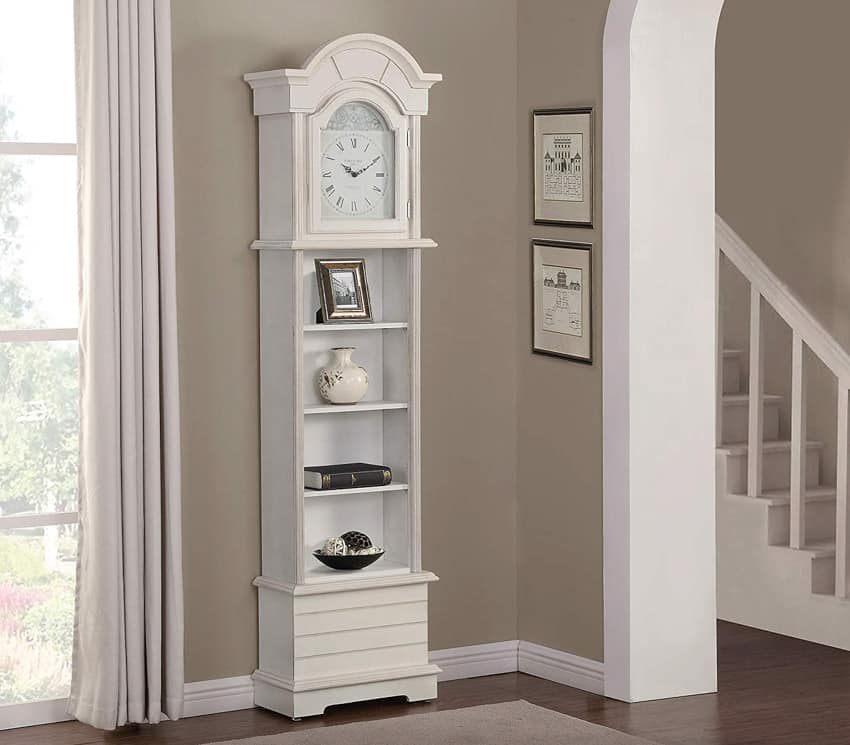
Freestanding clocks are often huge and stand on the floor rather than being mounted on the wall. The grandfather clock is the most common type of freestanding floor clock, but this category is not exclusive to grandfather-type clocks. Freestanding tripod floor clocks have also recently become increasingly popular and widely available.
One advantage of this style of timepiece is that it allows you to get a timepiece in your house even if you do not possess a lot of available wall space.
One other major factor to choose a freestanding floor clock is if you are just renting and are not permitted to drill holes in the walls. To be clear, this is a freestanding timepiece that will not need to be mounted.
Oversized Clock
Some persons with visual difficulties may find it challenging to view the digits on the clock and determine the time. As a result, choosing a clock with oversized digits on a huge screen would be a smart option.
This essentially makes it much simpler to check the time without needing to get too near to the clock. A timepiece with oversized digits is extremely useful in the bedroom since it allows homeowners to check the time even when they do not have their contacts lenses or eyeglasses on.
Timer
A timer is a type of clockpiece that is utilized to record the duration of time. It runs from zero upward to measure the amount of time that has passed.
Moreover, it can be a device that counts down from a defined time interval and is intended to establish a time-lapse, such as an hourglass. A timer clockpiece can either be wall-mounted or a table-type timepiece.
Grandfather Clock
The grandfather clock has to be the biggest and most ancient of all commercially available clocks. These are exquisite clocks that are intended to be as visually appealing as they are practical.
Normally, most types of grandfather clocks are freestanding rather than wall-mounted, and they often come in a variety of cheerful tones. Such tones can be heard every quarter of an hour, half an hour, or every hour.
However, grandfather clocks are the most costly form of timepiece you can purchase due to their huge size, unique design, and masterful craftsmanship, and they are frequently handed down through generations as a family heritage.
Grandmother Clock
If there is a grandfather clock, surely there is a grandmother clock as well. Well, technically, a grandmother clock is a smaller version of a grandfather clock.
A grandmother clock is normally more compact than a grandfather clock, therefore it is usually less than 6 feet and 3 inches tall.
A grandmother clock occupies minimal space in a location due to its thinner casing and shortened height, making it a great selection for cramped rooms, corridors, foyers, and stairwell landings. Pendulum clocks in smaller sizes are recognized as grandmother clocks as well.
Outdoor Clocks
If you prefer to place a timepiece outside your house, either on your deck or balcony, you should pick something that has been professionally designed and is certified for outdoor application.
Otherwise, you allow dampness and moisture from seeping into your timepiece and inflicting irreparable damage.
Previously, outdoor clocks were generally minimalistic in appearance; however, considerable interest has lately been made to the visual attractiveness of these clocks.
This implies you do not have to fret about whether or not your outdoor timepiece will be appealing, or whether it will interfere with your outdoor layout.
Clock Features
Here we share the different timepiece features to help find the model that’s right for your needs.
Digital
Digital clocks are quite prevalent, particularly alarm clocks as most individuals can simply glance at a digital clock and determine the time without much difficulty.
The majority of kids learn how to read time using a digital clock thus they do not have to face challenges with interpreting the minute and hour hands.
Another advantage of digital clocks is that the numerals usually illuminate. Even in the darkness of the night, this makes it incredibly easy to know the time.
Analog
Analog clocks include digits around the edges of the display, which are intended to indicate the time, as well as hour and minute hands. They frequently have a second arm that could be used to easily measure small amounts of time.
Even though it takes more effort to understand how to read analog clocks than digital clocks, they are quite prevalent in most workplaces and schools and have a very respectable appearance.
Smart Clock
Smart clocks are commonly integrated with Google Assistant or Alexa, and they function as both a clock and an audio or visual digital assistant made for your bedside table. A smart clock will not only wake you up every morning but will also assist you in arranging your day and schedule.
You may use it at nighttime to monitor the lock system in your house, temperature, or other smart gadgets you have associated, and even play music while you rest.
Furthermore, a smart clock is often compact. Most of these clocks come with speakers and are touch screens. They enable you to hear, see, and communicate with the digital information you need.
Large Display
It is a clever option to choose a clock with big digits and a large display. This allows you to view the time without bothering yourself to get too close to the clock. A clock with bigger digits is useful in the bedroom since it allows users to read the time from any distance.
Such clocks with massive displays have wide screens and large digits that are extremely simple to read. Certain large digital clocks are excellent devices for people who have memory problems, poor vision, or mental disabilities.
This type of readout might also be useful for anyone searching for an alarm clock with an easy-to-read LED display, or for senior citizens.
Roman Numeral
Although clocks that use Roman numerals are not as prevalent as analog or digital versions, they are still widely available for purchase.
These clocks do not vary in terms of how they display time, but many individuals still prefer clocks with Roman numerals simply because of their elegant appearance.
A Roman numeral clock might just be what you need if you prefer an elegant and useful decor piece. Their hands appear richer and better looking than standard digital or analog clocks, at the expense of readability..
Pendulum
Clocks that use pendulums are among the planet’s most well-known types of timepieces. They were developed in the mid-1600s and have been utilized in residential and commercial locations ever since.
Such clocks have exceptionally broad swinging motions that enable the unit to maintain regularity. Newer pendulum clock models, on the other hand, typically have smaller-size pointers to save space in an area.
Pendulum clocks depend on gravitational force to operate. Gravity’s pull varies a little based on where you are. This indicates that when a clock is positioned at an elevated altitude above sea level, it can display the time inaccurately.
Moreover, as temperatures vary, it can shift length by growing on hot days and shrinking on cold winter days. All of these factors can reduce the accuracy of pendulum clocks.
Battery Power
Numerous individuals prefer not to deal with cables when purchasing a new clock. As a result, choosing a battery-powered clock is an excellent option.
Not only will this lessen the number of exposed cables in your house or workplace, but if you experience a power failure, your clock will also continue to function normally.
If you choose a battery-powered clock, you will need to update the batteries regularly before they start to deteriorate. Otherwise, it will malfunction and might inaccurately display the time.
These clocks often run on AA or AAA batteries, which implies that replacing the batteries for your clock would be simple and cheap.
Solar Powered
A solar-powered clock is a mechanism that uses a solar plate to convert light from the sun and incandescent light displays into electric energy. The principles of a solar clock and a solar watch are similar.
Once the clock’s dial is exposed to sunlight, the integrated solar cell generates electrical energy and stores it in another cell, including a rechargeable cell, as a power source for the clock’s efficient operation.
Furthermore, a solar-powered clock is an environmentally friendly clock that connects non-contaminating energy supplies, including daylight, and uses rechargeable batteries to reduce the environmental burden.
Radio
A radio clock is an excellent choice for anyone who simply wants to see the time as well as listen to music without having two independent devices on their workstation or bedside desk.
Like telephone answering machines, the clock radio is a wonderful example of combining two existing devices to create something new. Since its introduction in 1947, the clock radio has been a bedroom mainstay. – A Field Guide to Household Technology, Ed Sobey
Another advantage of using a radio to tell the time is that you can easily preset your alarm to a certain radio station, allowing you to wake up to music rather than loud ringing.
Calendar
A clock with a calendar built in the display is ideal to be placed on a desk or workstation since it allows you to see clearly what date it is without the need for a separate calendar that will only take up added space on your desk.
These models do not normally display the entire month. However, they do display the date so that you will constantly see what date it is. This makes them perfect for application in your workplace.
Musical
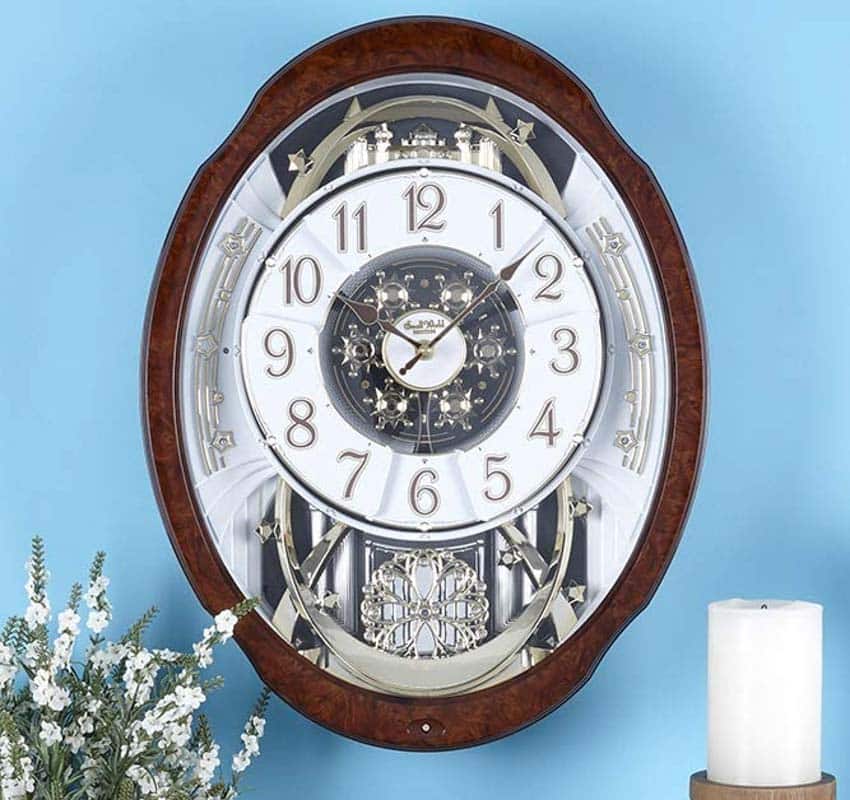
Musical clocks, as the name suggests, can produce music and are henceforth a wonderful feature to the lounge room or children’s room. Before purchasing a musical clock, it is crucial to see what songs are featured in its collection to assure you that you will appreciate the music it plays.
Light Sensor
A clock with a light sensor is suitable for usage in a child’s bedroom because it will not produce any sound when the room turns dark.
This implies that you should not worry about the timepiece generating noise when you lay your youngster to bed, switch off the lights, and close the windows.
Clocks with light sensors, as opposed to those with an automated chime shutdown, are more responsive and will automatically adjust.
Clock Shapes
Here we share the different shapes of clocks for interior design.
Round
Because of its appealing appearance, a round clock remains highly common for wall and desk clocks. This design is relatively standard, and almost everyone can easily acquire a round clock.
They provide a great deal of appeal to a gallery wall when utilized on it since they do not have sharp edges like most of the objects on the wall. A round clock’s digits are uniformly spread across the display, making it very convenient to read.
Rectangular
While there is no real distinction between a rectangular and a round clock, the form adds a little more excitement to the aesthetic of the design. Due to the larger size of the display of the clock, these models are usually digital and might include weather updates.
Square
Square clocks are typically utilized as an alarm or just a regular timepiece sitting on a desk. When searching for a clock that also indicates the date or the temperature, you will most probably come across one that is square since these models are often digital and have ample space for all of the data that purchasers want to have.
Novelty
Clocks of unique shapes are enjoyable, and they are a fantastic way to display your personality and preferences while still properly checking the time in your house or business.
Another factor to take into account while searching for a novelty clock is your subject of interest. Afterward, you can look for a model that depicts this. Whether you have a favorite animal, adore boating, or simply search for a product representing art and functionality, a novelty clock would be a great choice.
Such clocks are frequently used as topic openers, so you will never need to fret about what to talk about with someone when you initially meet them in your house or workplace.
Clock Mechanisms
Here we share the different types of mechanisms of clocks and their definitions.
Electric: Rather than needing to rewind your timepiece routinely, you can select an electric-powered timepiece. All you need to accomplish with this type of timepiece is plug it in a power source, and you can already leave it as it is.
The major concern that individuals face when selecting an electric timepiece is that if the electricity cuts in the house or apartment where the timepiece is situated, the timepiece will not operate.
Contingent on whether or not the timepiece is atomic, the homeowner must set the time and ensure that the clock is plugged in for it to resume operating once electricity has been restored.
Quartz Movement: This form of timepiece mechanism depends on an electrical generator that is controlled by quartz crystals to establish time. Because the crystal generator retains very accurate time, this type is far more precise than mechanically-operated models.
Quartz movement clocks, which were first developed in 1927, got increasingly prominent in the 1980s as they became less costly and more compact. They became considerably more widespread in houses all around the globe about that time.
Atomic: Unlike other types, which require the user to physically adjust the time, atomic clocks use an electron shift frequency to manage time.
This implies that these are the most precise commercially available, and they are utilized for global time transmission because there is no time deviation.
If you are concerned about being late, or if you do not like to regularly adjust the time on your timepiece after changing the battery or after an electricity interruption, an atomic clock would be the appropriate solution for you because it will instantaneously adjust the time without your assistance.
Mechanical: A spring that has been twisted tightly will energize this style of timepiece. The spring can store energy before transferring it to other springs and mechanisms to operate the timepiece.
If you do not like to regularly wind your timepiece, it might be necessary to research a different model. These clocks should be wound on a frequent and accurate basis. Otherwise, they will stop working and might get damaged.
Auditor: Clocks with auditory mechanisms indicate time by using a recorded clip of a human voice or a computer-generated voice. Therefore, auditory codes might be used rather than voice time.
This type of timepiece is frequently used for declaring time in wide regions such as telephony or for people with visual impairment.
Which Clock Is Best For Home?
A round analog wall clock greatly impacts the house, its decor, and its elements. As a result, selecting minimalist designs would be suggested. Select round clocks since they are the simplest shape and will help increase the general uplifting vibe of any area.
Moreover, the most prevalent type of timepiece is the round wall clock, found in houses and workplaces. They can be utilized merely for functionality, allowing you to quickly gaze up and read the time from anywhere in the room.
Aside from that, round wall clocks can be utilized to decorate your walls. You can place one over a mantel, along a wall, or over a lounge area to bring flair and character to the space.
However, if the majority of your household members are children, seniors, or people with poor eyesight, the best type of time-telling device recommended would be a rectangular digital clock.
Rectangular digital clocks have a larger display space and more functionalities than their analog rivals. Digital clocks are easier to read in high-stress, time-sensitive situations, and certain digital models have a countdown timer to assist people in keeping track of the time. They can also help in sending children to their next studying session on time.
Digital clocks are undoubtedly easier to understand and offer more complex features than analog clocks, but they are typically more costly. When picking between digital and analog clocks, keep your budget in mind.
Where Should A Clock Be Placed In The Living Room?
Placing a wall time-telling device in a living room appears simple, but you must first take into account the following criteria when deciding where to position a wall timepiece in your living room.
• Hanging a timepiece above your large sofa. You can place a time-telling device above your big sofa to add aesthetic emphasis by making the timepiece viewable from an entryway or elsewhere within the living room layout.
When hanging a large or hefty wall time-telling device over a couch, take precautions. You should also ensure that it hangs properly and securely to make sure that it will not fall easily. Otherwise, it might cause harm to those people sitting on the couch.
• Placing the wall time-telling device above a table or bookcase. A large, ornamental wall time-telling device above a compact table or bookcase can make a significant visual impact.
Arrange artworks or plants to the side of the time-telling device to balance objects out. To create a harmonized aesthetic, use color, structure, and differently shaped home accessories with your wall paint.
Putting a time-telling device against a window or entryway. It is preferable to place a wall time-telling device opposite an entryway or window, instead of putting it close to a window or overhanging over the entrance. When standing in an entryway, the timepiece must be very noticeable.
How Big Should a Clock Be?
The width of a wall time-telling device must be between 6 and 18 inches. Wall pieces are often available in 3 sizes: small, medium, and large.
A small timepiece is approximately 8.5 inches in diameter, a medium timepiece is approximately 12 to 24 inches in diameter, and a large time-telling device is approximately 24to 32 inches in diameter.
A time-telling device must not be selected if it does not fit the area where it will be placed; the space around the time-telling device must be 4 times as high as the timepiece and 6 times as broad.
It is advisable to set the time-telling device at eye level to make the space appear larger; it is also recommended to leave 9 inches between the ceiling and the placed timepiece.
How Do I Choose A Good Wall Clock?
• Pick a wall timepiece with steel frames highlighted with color if you have a contemporary interior décor. This design is completed by intricate details distributed across the display of the clock. In reality, this wall timepiece form also works nicely in industrial settings.
• When your surroundings are more classic or minimalist, a wall timepiece that uses Roman numerals could enhance the overall appearance of your area, providing it with a timeless aesthetic.
• When choosing a good wall timepiece, make sure the color contrasts your wall paint as this is the surface where you will place your timepiece.
Pick deep, bold colors if your walls are classic white. However, you can pick a lighter-colored wall timepiece if you have a bold-colored accent wall.
• Ensure the darker or lighter color you select complements a pre-existing color in the space to produce a more coherent effect.
See more related content in our article about the best wall decor ideas for your home office on this page.

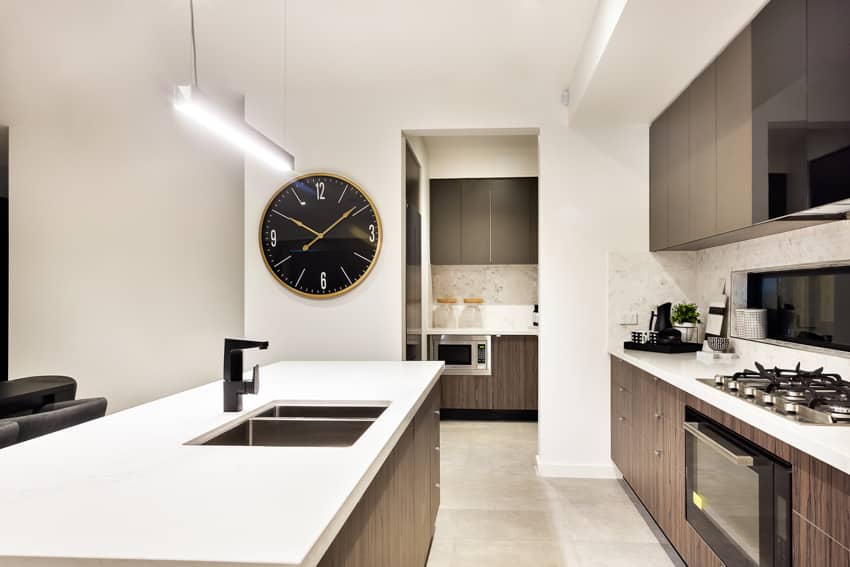
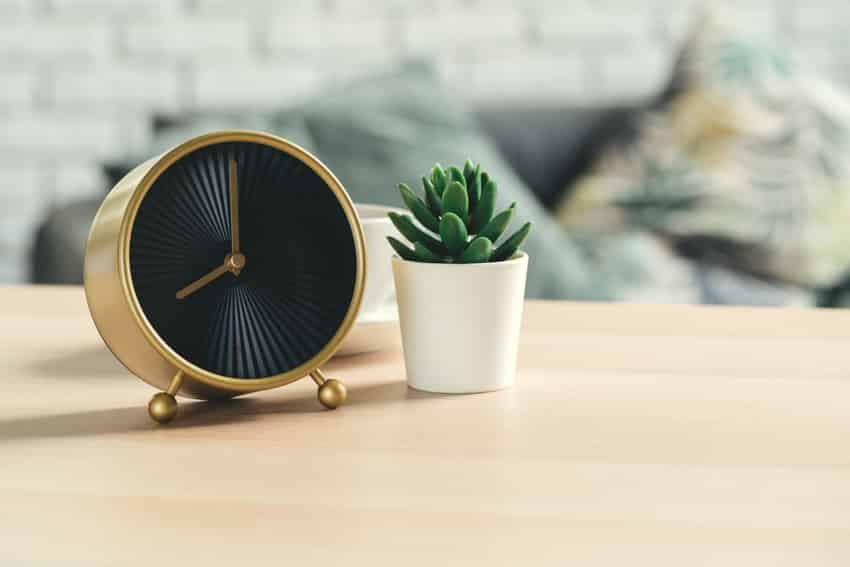
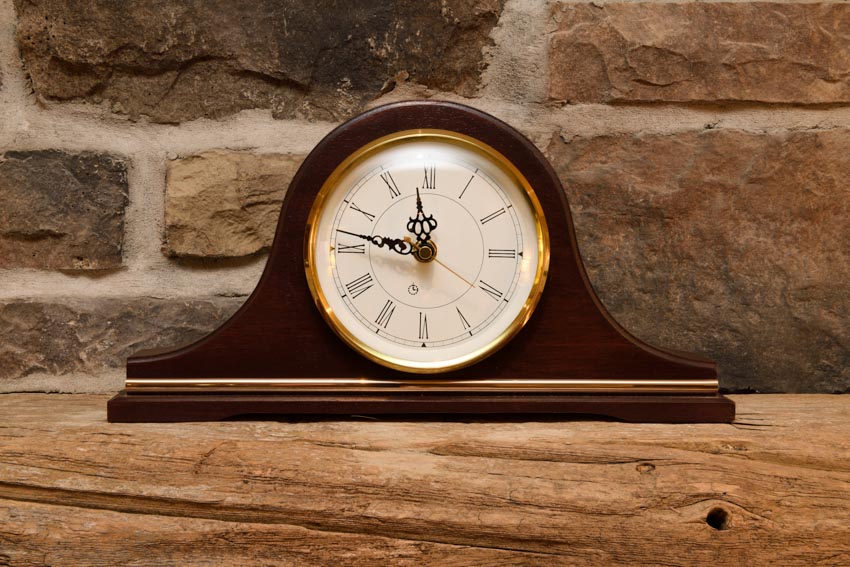
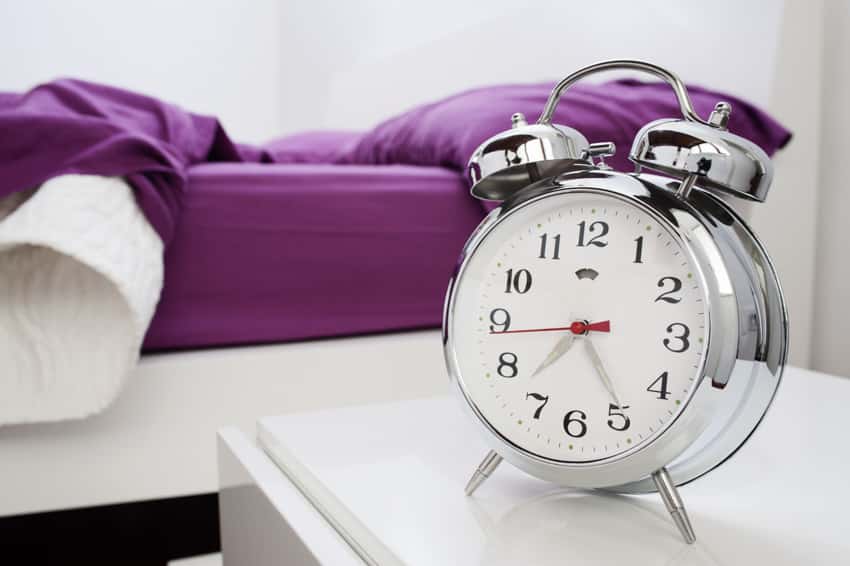
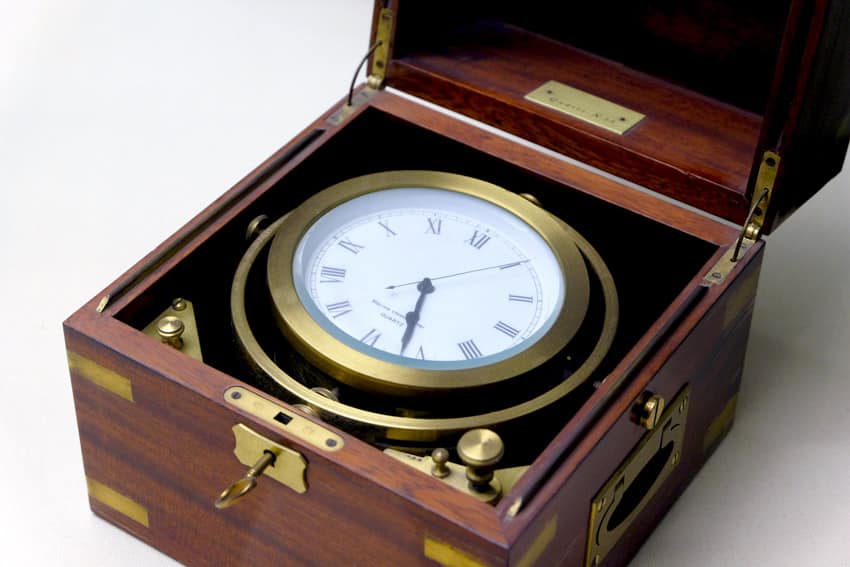
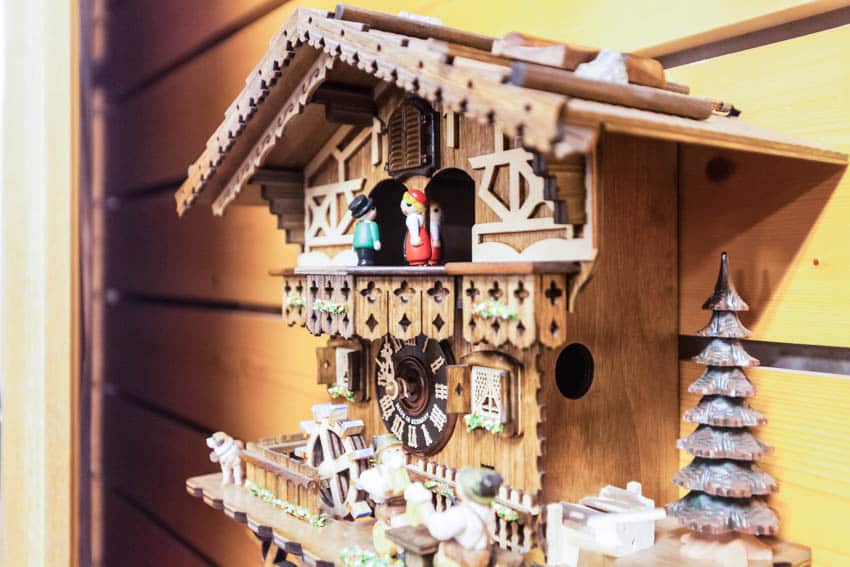
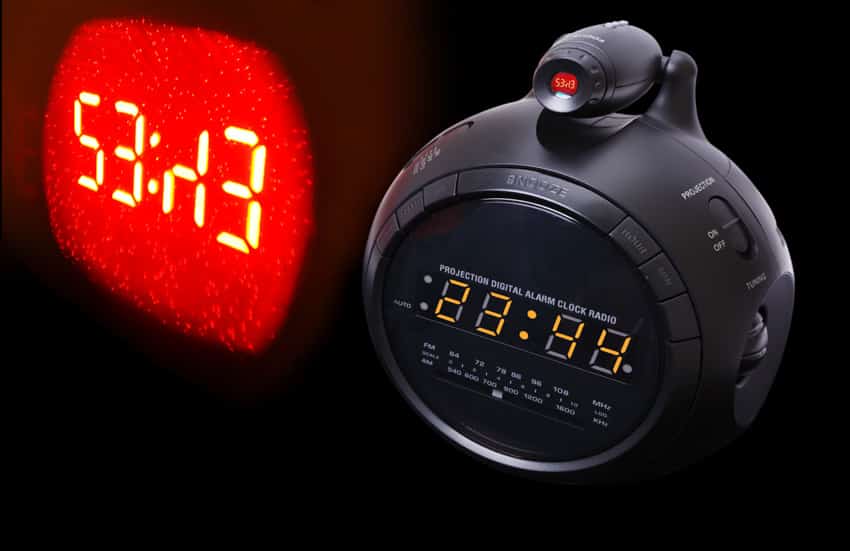
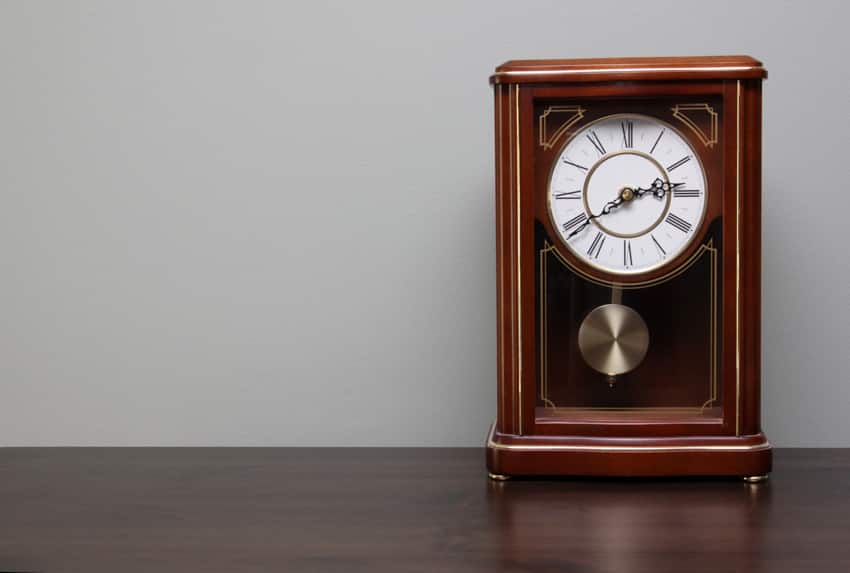
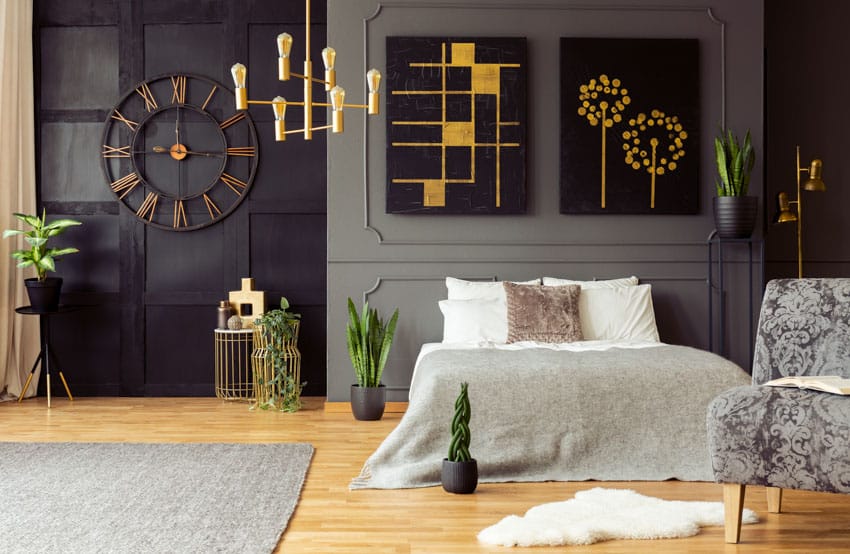
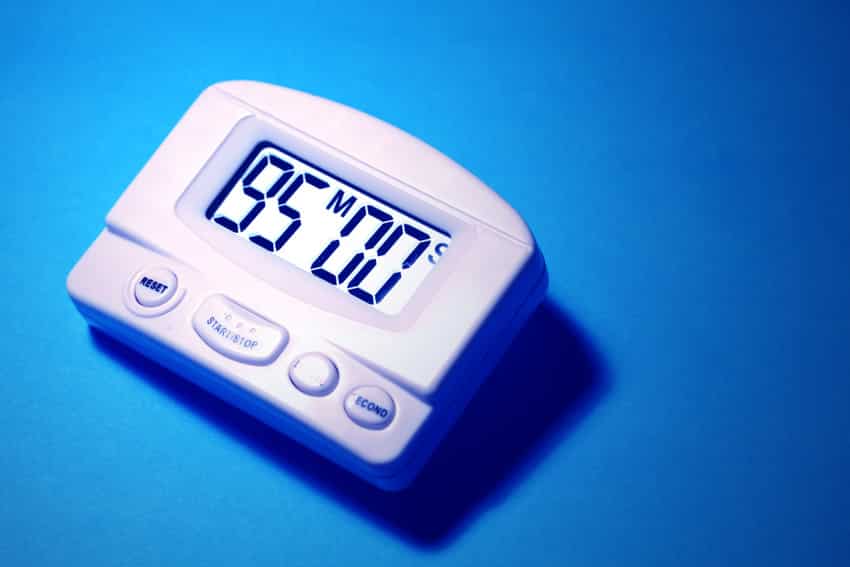
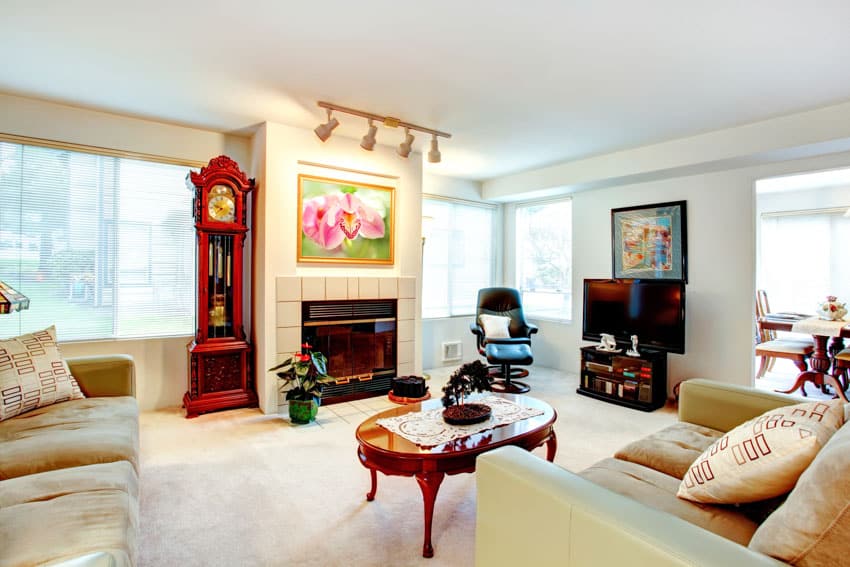
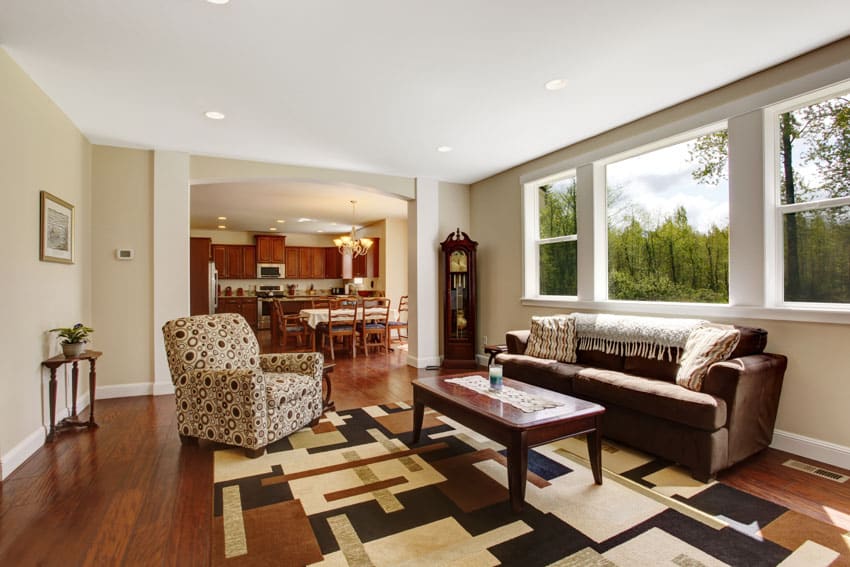
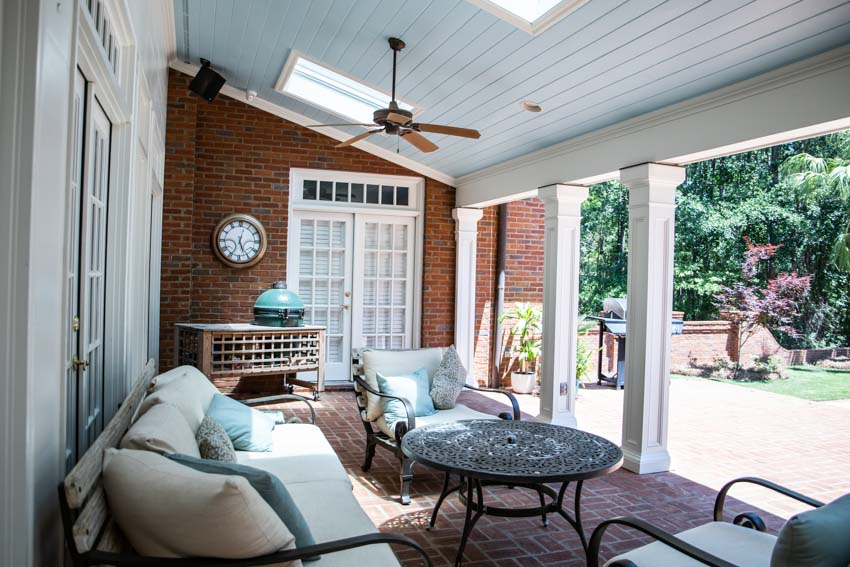
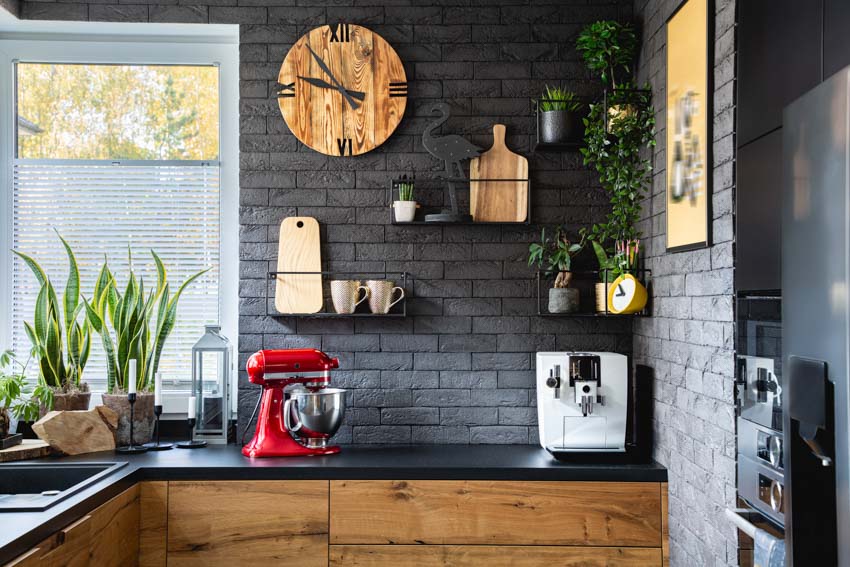
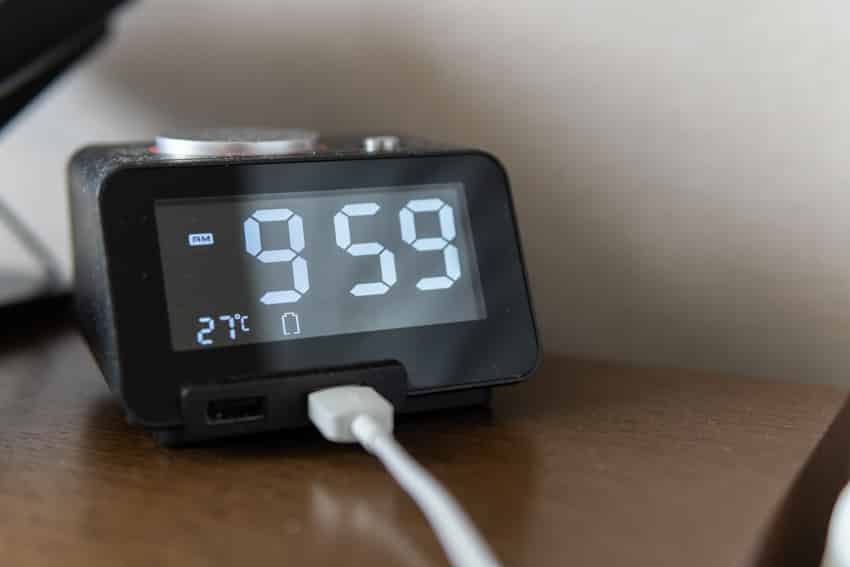
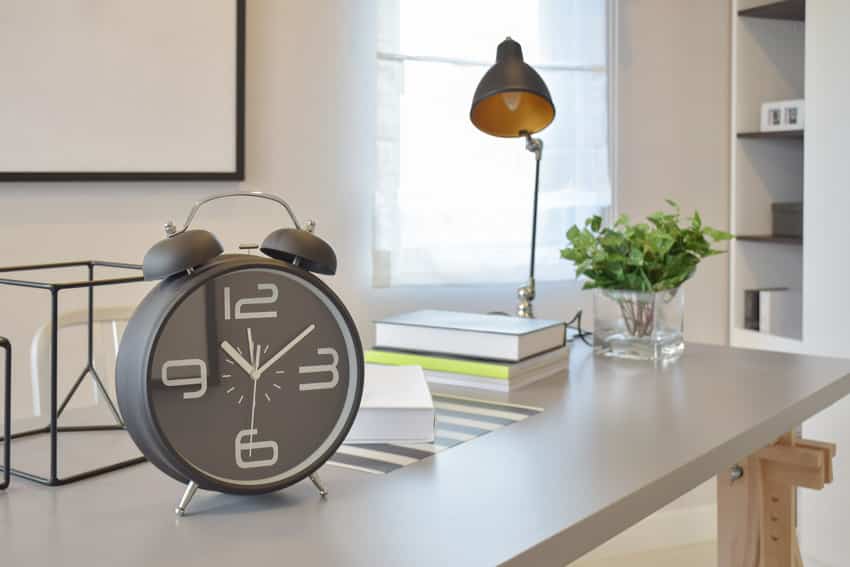
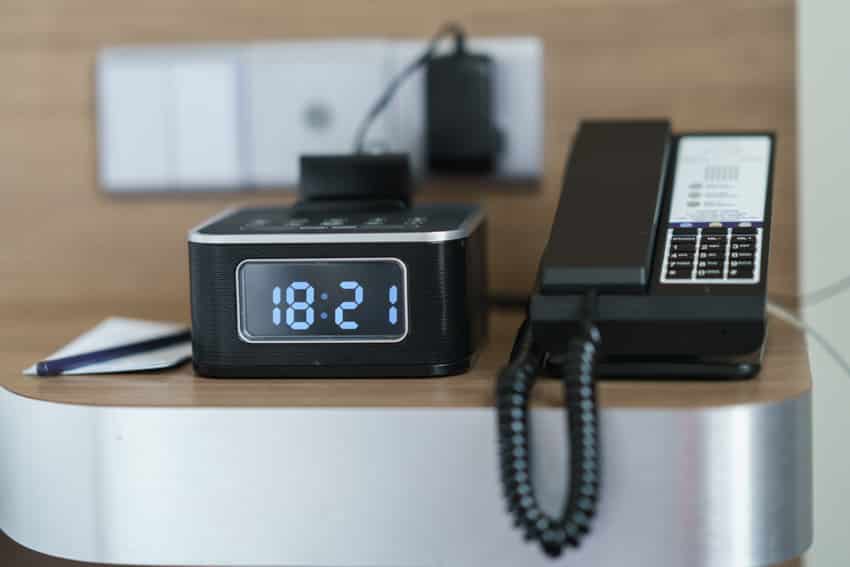
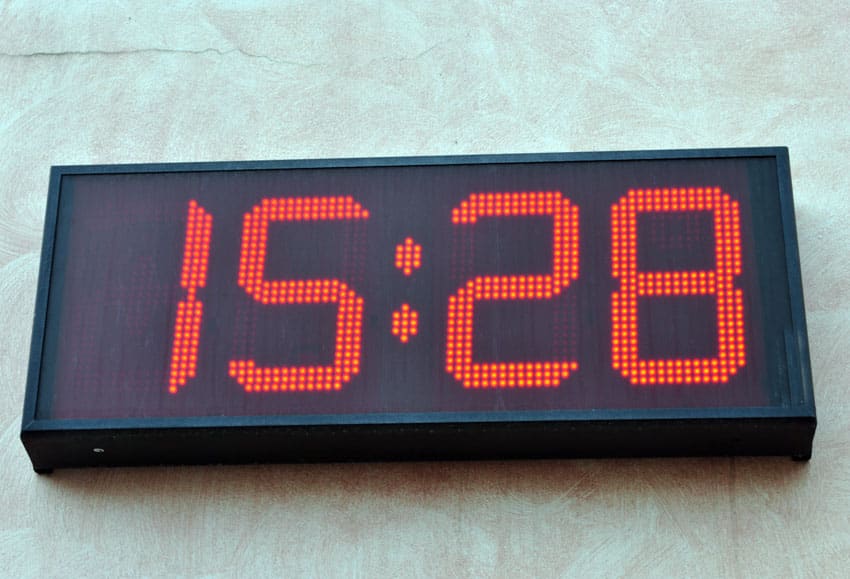
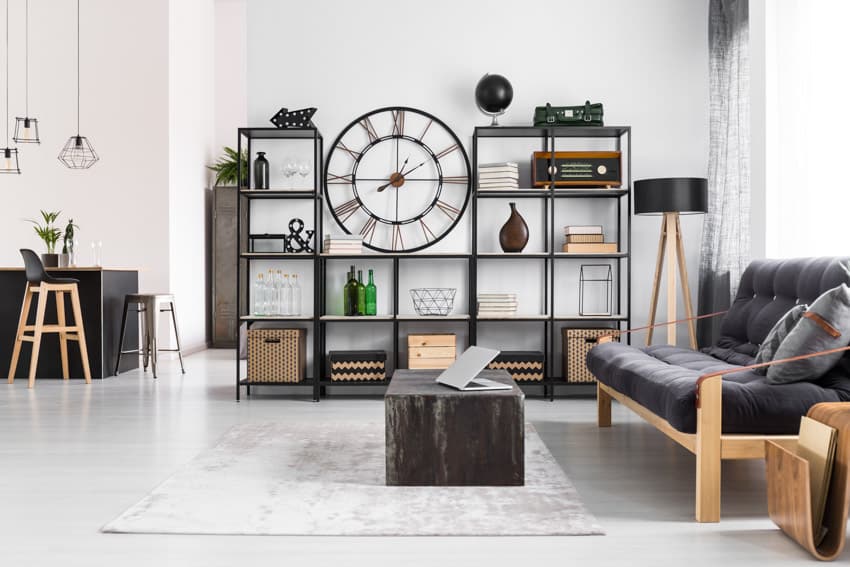
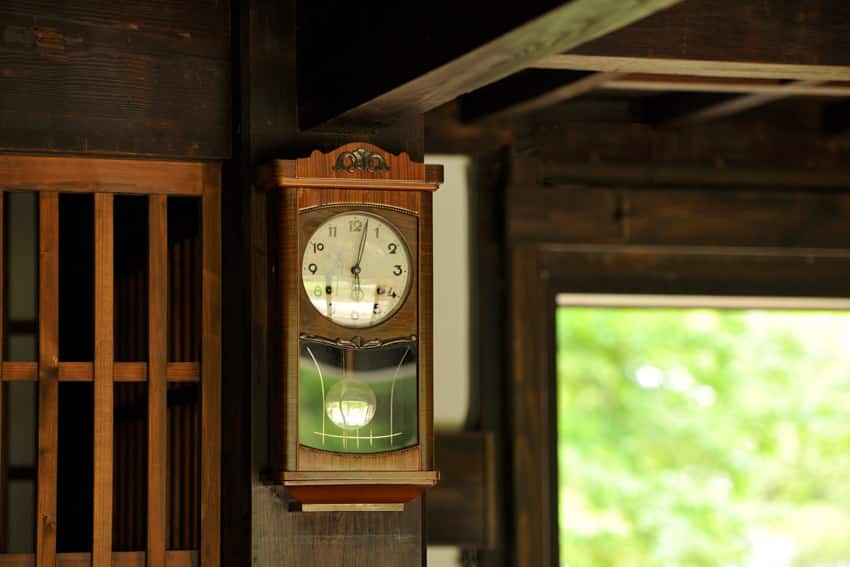
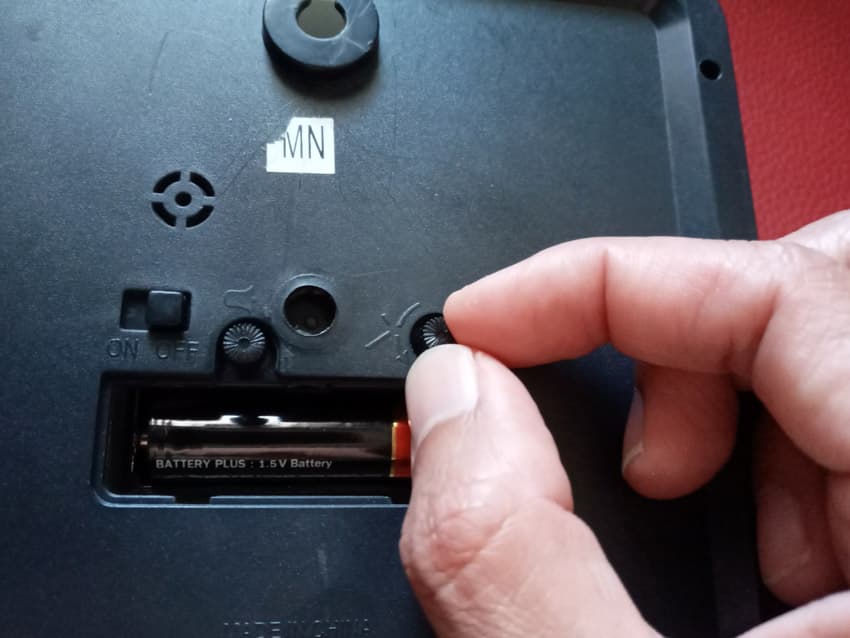
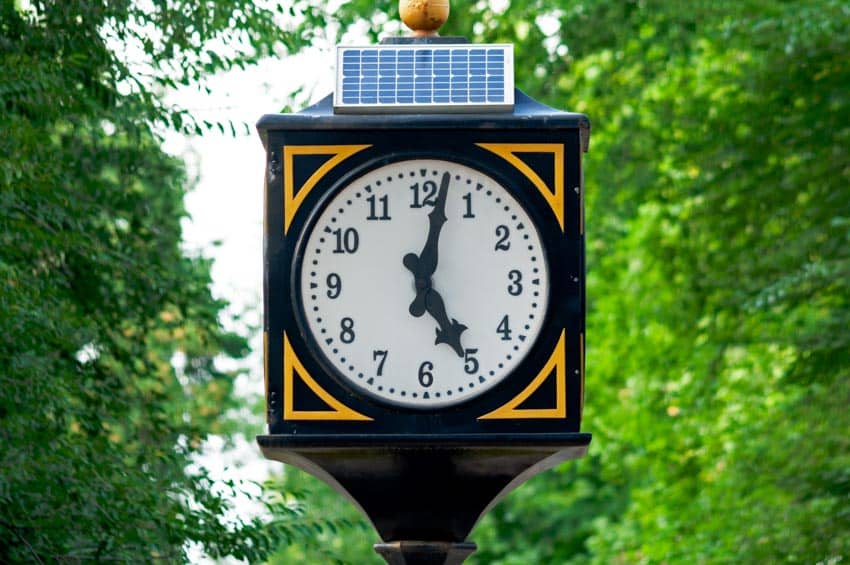
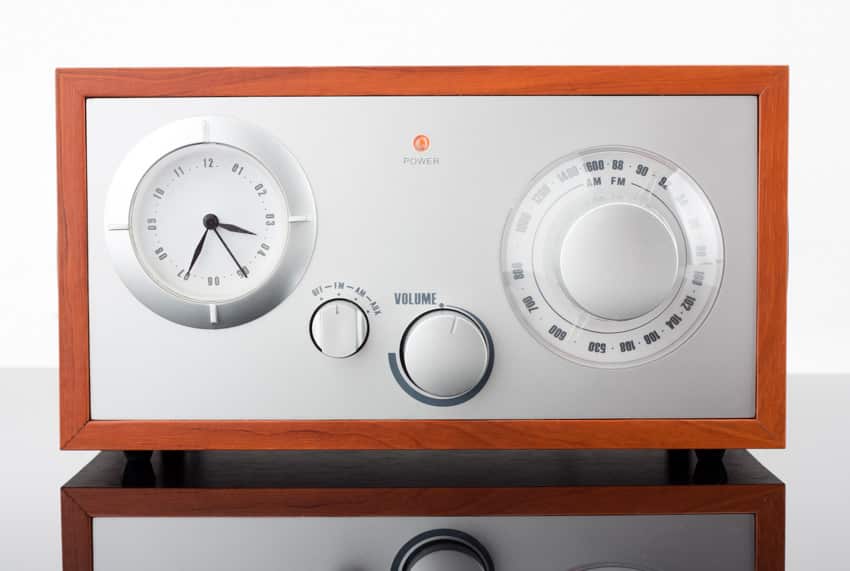
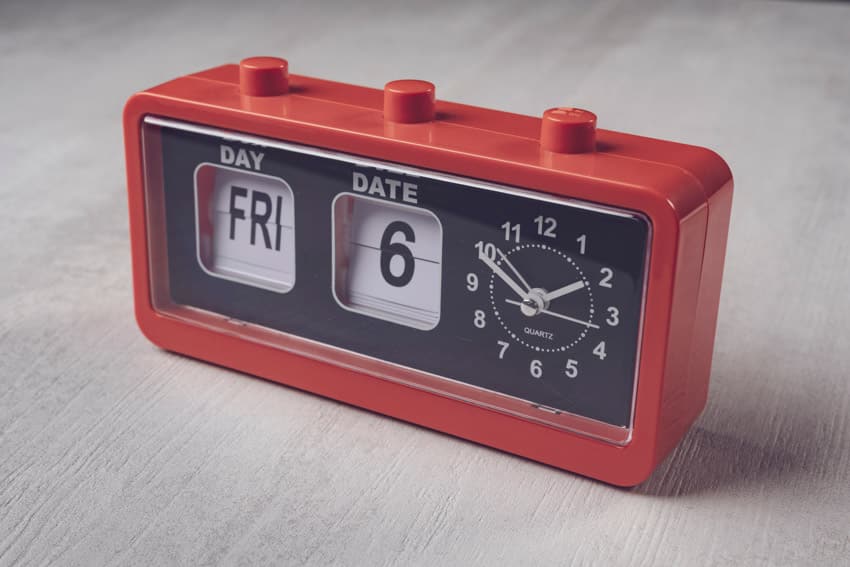
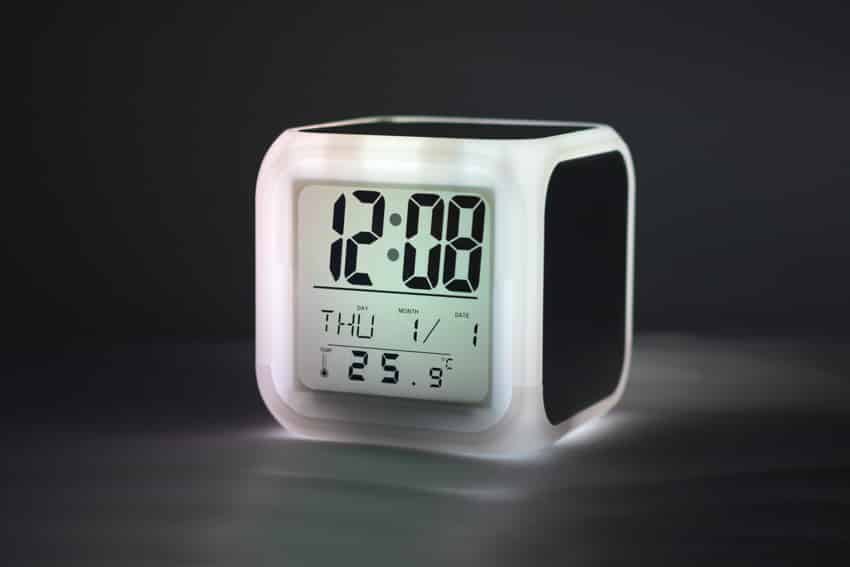
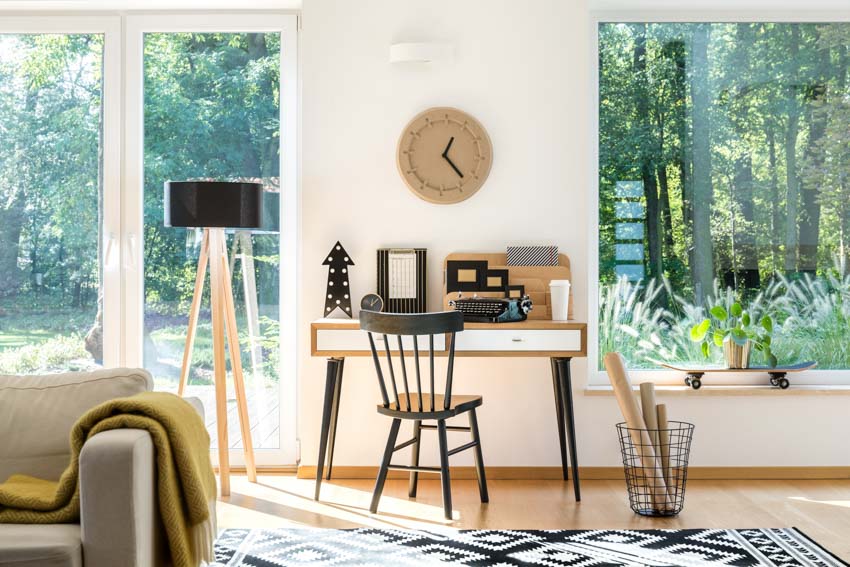
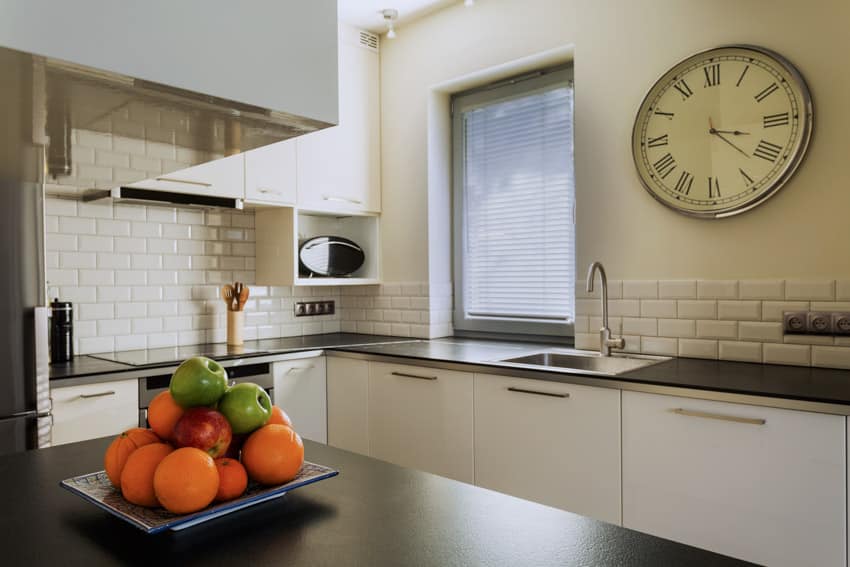
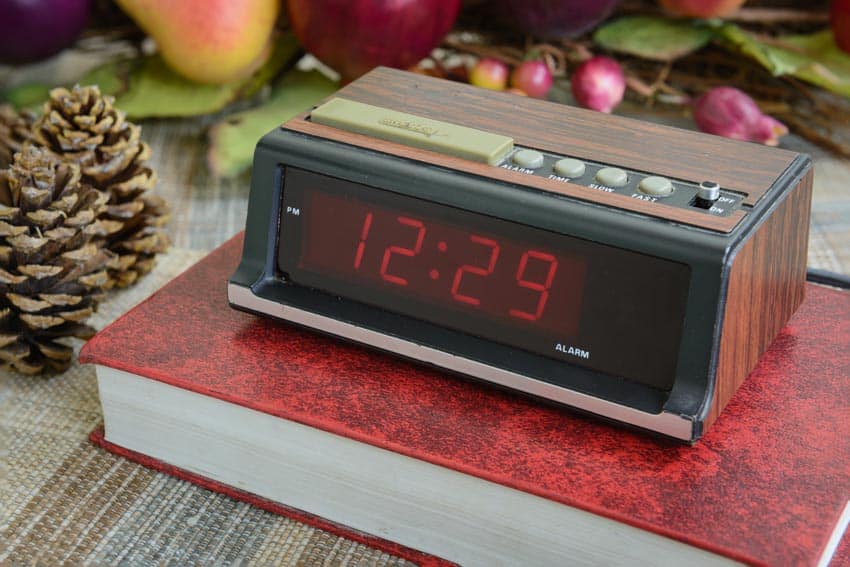
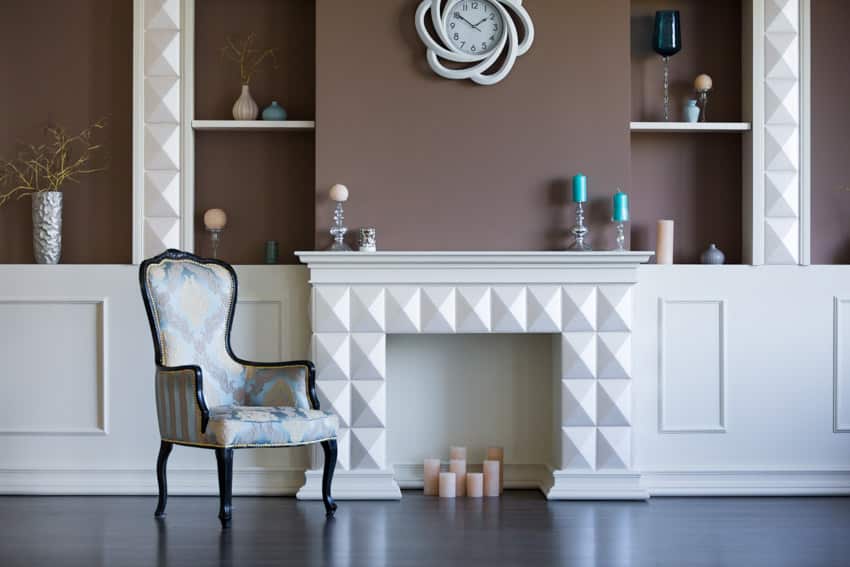
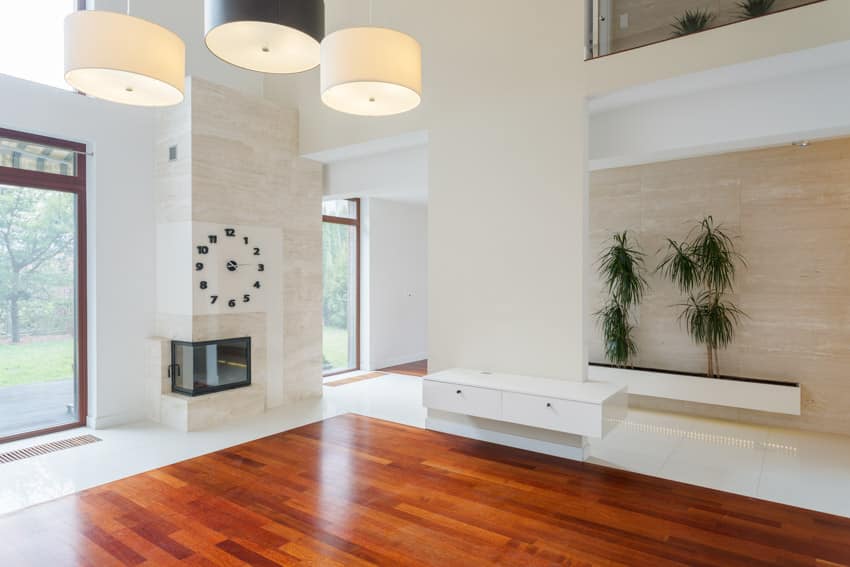

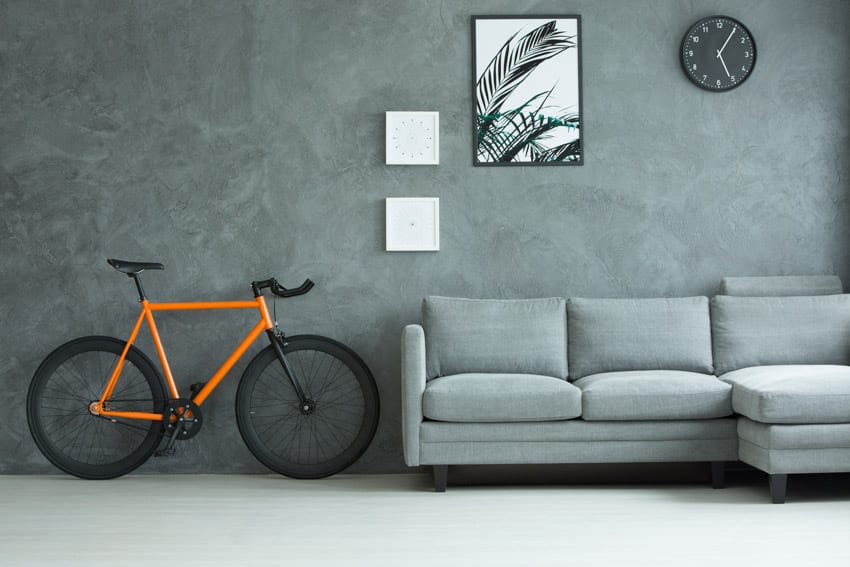
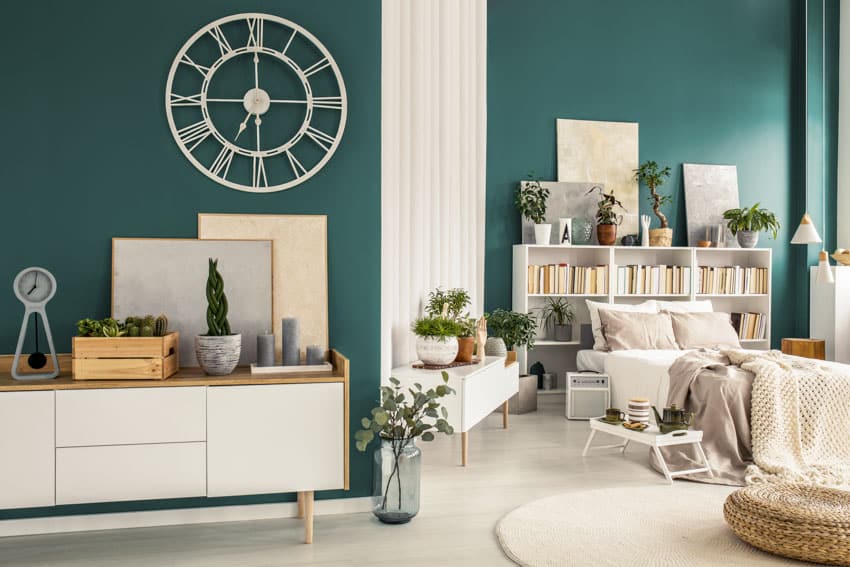
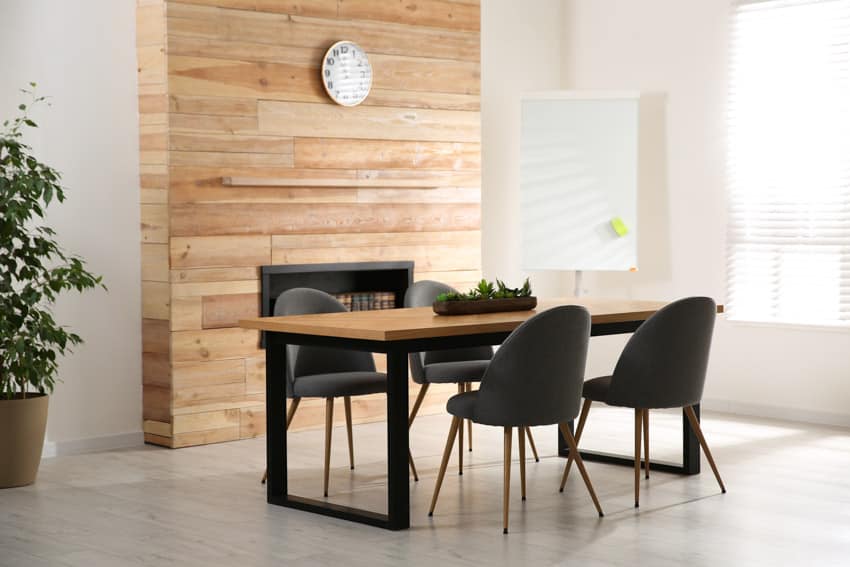




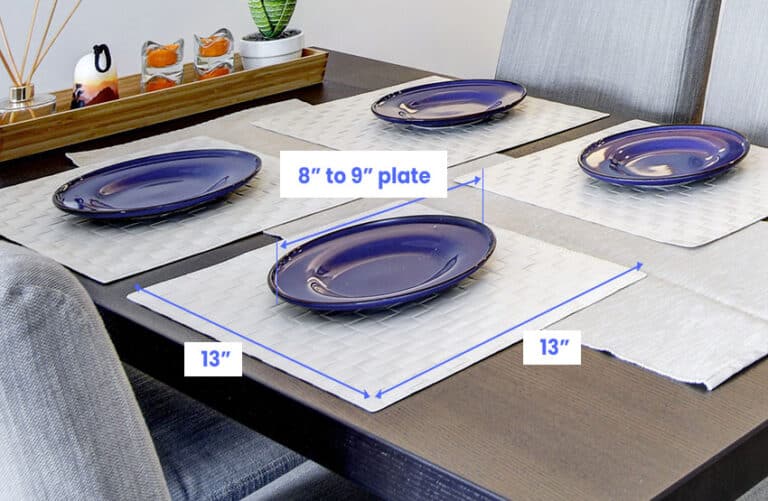

I usually go to bed late and in the morning I’m usually late for work. I think I need to buy an alarm clock so I get up on time. I think I just need a little watch to put on in the morning to wake me up in the morning, my wife bought me a cute little digital watch, it looks amazing, I love it. I can even take it with me anywhere, in the car or on business trips, I can easily take it with me.